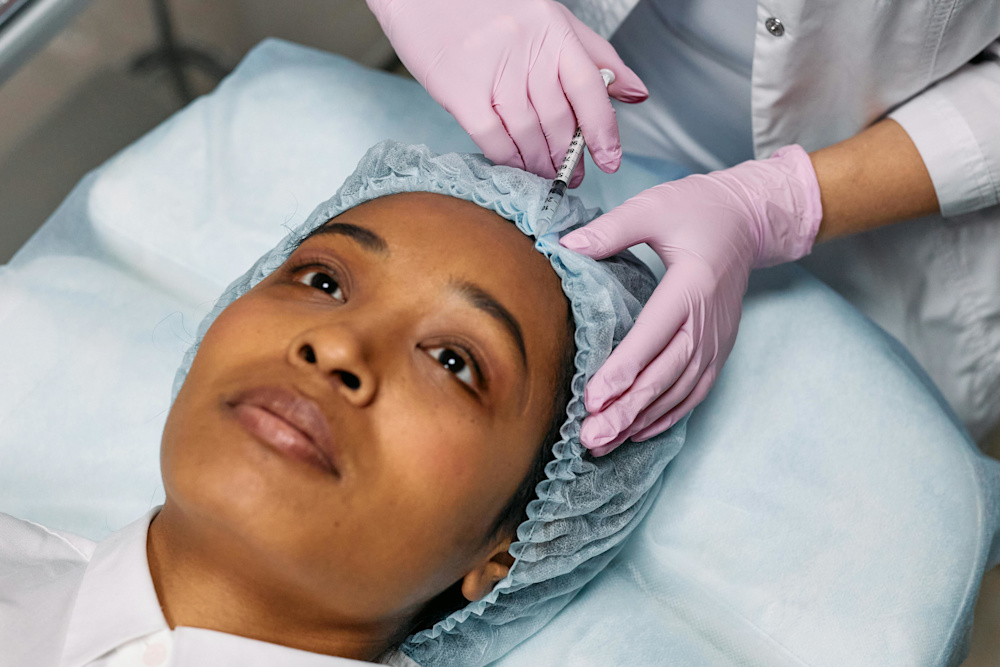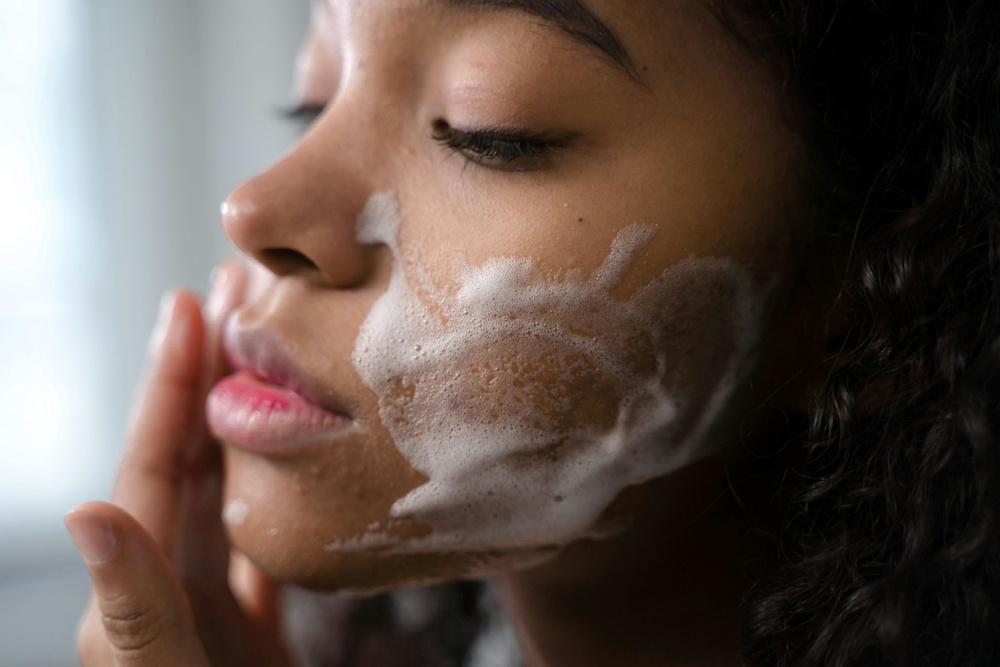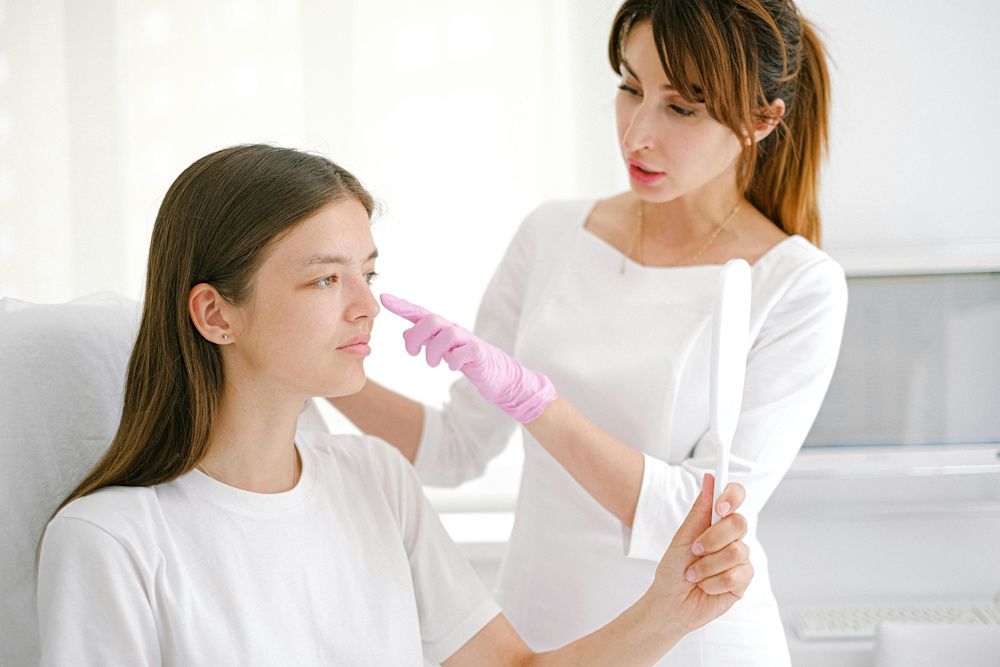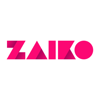Updated October 21, 2025
English Speaking Dermatologists in Japan: A Guide for 2025
When you notice a suspicious mole, sudden rash, or persistent skin irritation while in Japan, the last thing you want to worry about is whether you can properly communicate your symptoms to a doctor.
Thousands of expats and travelers face this exact situation every year. The reality is that quality English-speaking medical care exists in Japan, you just need to know where to look.
This guide will help you find a reliable English speaking dermatologist in Tokyo and beyond. We also share some practical tips about Japanese healthcare that'll make the whole process easier.
In this article: 📝
English Speaking Dermatologist Tokyo
Tokyo offers the most options when it comes to English speaking dermatologist in Japan. Below are some of the best clinics in the city known for their quality services.
Meguro Dermatology Clinic
Specialization: General dermatology and cosmetic treatments
Location: 1F 3-10-49 Knot Hanabusayama, Kamiosaki, Shinagawa, Tokyo
Contact: 03-6409-6079
Opened in 2014 by Dr. Yuko Fukano, Meguro Dermatology Clinic offers treatments for all age groups and skin concerns. Located just 3 minutes from Meguro Station, it's easily accessible via JR Yamanote, Tokyu Meguro, Tokyo Metro Namboku, and Tokyo Metro Mita lines.
This clinic handles everything from basic skin conditions to complex dermatological issues. Recently, they added full-body mole checks for skin cancer screening, a service that's becoming increasingly important for preventive care.
Patients can make online or phone reservations and use their Japanese health insurance. In addition to having an English-speaking doctor, the clinic staff also speaks English.
Takadanobaba Dermatology & Cosmetic Surgery
Specialization: Comprehensive dermatology, plastic surgery, Mohs surgery
Location: Building 108, 5th floor, 1-25-32 Takadanobaba, Shinjuku-ku, Tokyo
Contact: 03-3232-1010
This clinic stands out for its dual board certification: Dr. Suzuki is certified in both dermatology and plastic surgery. This combination makes the clinic particularly valuable for complex cases that might require both medical treatment and surgical intervention.
The clinic appears on the U.S. Embassy Tokyo Medical Assistance website, which means they meet international standards for treating foreign patients.
They specialize in Mohs surgery for skin cancer treatment, advanced care for conditions like rosacea and atopic dermatitis, and various cosmetic procedures.
They also offer dermapen treatments for acne scarring and various laser therapies. For patients with Waseda University health coverage, they're a contracted medical institution, though English consultation fees may not be covered.
Shibuya International Skin Clinic
Specialization: General dermatology, pediatric dermatology, cosmetic treatments
Location: 1F, Tokai Building, Higashi 1-27-10, Shibuya-Ku Tokyo
Contact: 03-3486-6601
Languages: English, Chinese, Japanese
Dr. Lily Hsiao brings over 25 years of clinical experience to Shibuya International Skin Clinic. She developed the innovative "2 Minute Quick Tzanck Test" for rapid diagnosis of skin conditions, allowing for faster and more accurate treatment decisions.
The clinic takes an evidence-based medicine approach and prioritizes insurance-covered treatments over expensive cosmetic packages. They don't push unnecessary procedures or expensive product sales, which sets them apart from some other cosmetic-focused clinics.
They treat patients of all ages, from infant eczema and childhood skin conditions to adult acne and age-related skin changes. The clinic is equipped with phototherapy equipment, cryotherapy devices, and various laser systems for complete treatment options.

HADA NO CLINIC
Specialization: Acne treatment, AGA, anti-aging, isotretinoin therapy
Locations: 4F, 4-6-7 Koenji-Miinami, Suginami-ku, Tokyo
Contact: 03-5913-7435
Languages: English, Chinese, Taiwanese, Japanese
HADA NO CLINIC deserves special mention for pioneering isotretinoin therapy in Japan, which is considered the gold standard for severe acne treatment worldwide.
Beyond acne treatment, they offer comprehensive hair loss therapy using finasteride, dutasteride, and minoxidil. Their anti-aging treatments include Botox, hyaluronic acid injections, and HIFU skin tightening. They've also gained popularity for weight loss therapy using GLP-1 receptor agonists like Mounjaro and Ozempic.
The clinic also creates and prescribes custom, preservative-free cosmetics specifically designed for acne-prone and sensitive skin.
Meguro Chen Dermatology Clinic
Specialization: Cutaneous vasculitis, refractory rosacea, allergology
Location: Shinyo-CK Building 6F, 3-3-5 Kami-Ohsaki, Shinagawa-ku, Tokyo
Contact: 03-5421-2651
Dr. Chen Ko-Ron at Meguro Chen Dermatology Clinic is your go-to specialist for difficult and refractory skin conditions. After graduating from Keio University School of Medicine and completing his PhD, he spent two years conducting research at Mayo Clinic's Department of Dermatology in the United States.
His specialization in cutaneous vasculitis makes him particularly valuable for patients with complex autoimmune skin conditions. He's also highly experienced in treating refractory rosacea and severe atopic dermatitis that hasn't responded to conventional treatments.
Garden Clinic Hiroo
Specialization: General dermatology, cosmetic dermatology, skin cancer screening
Location: 2F 7-14-7, Minami-Aoyama, Minato-ku, Tokyo
Contact: 03-6427-9198
Located near Nisseki Medical Center and the International School of Sacred Heart, Garden Clinic Hiroo serves the international community in Tokyo.
Along with treating children and adults for various dermatological conditions, they specialize in skin cancer screenings and offer a variety of cosmetic treatments and vaccines.
Waseda Street Skincare Clinic
Specialization: General dermatology, pediatric dermatology, allergology
Location: 4F Yubun Building, 2-17-6 Takadanobaba, Shinjuku-ku, Tokyo
Contact: 03-6265-9647
What sets Waseda Street Skincare Clinic apart is its no-appointment policy. You can walk in during office hours and be seen the same day.
The clinic covers comprehensive dermatological care, including atopic dermatitis, acne treatment, fungal infections, viral conditions like shingles and warts, and allergy testing. They also offer cosmetic services, including placenta injections, various whitening treatments, and chemical peels.
Nishishinjuku Satellite Clinic Dermatology
Specialization: Hair disorders, skin cancer, fungal infections, atopic dermatitis
Location: Hiltopia Underground Mall, 6-6-2 Nishishinjuku, Shinjuku-ku, Tokyo
Contact: 03-6302-0755
The director of this clinic, Dr. Ryoji Tsuboi, is an emeritus professor from Tokyo Medical University with exceptional qualifications. He completed postdoctoral research at New York University Medical Center and served as Professor and Chairman of Dermatology at Tokyo Medical University for 18 years.
This satellite clinic of Tokyo Medical University Hospital offers university-level expertise in a convenient location within two minutes of the Nishi-Shinjuku subway station. Dr. Tsuboi specializes in hair disorders, including alopecia areata and male/female pattern hair loss.
The clinic provides topical immunotherapy for alopecia areata and treatments for pattern hair loss. They treat common conditions like acne, atopic dermatitis, psoriasis, and skin cancer with the backing of a major university medical system.
English Speaking Dermatologist Kyoto, Osaka (Kansai)
The Kansai region, including Osaka and Kyoto, offers several excellent dermatology clinics. Here are some of the best English speaking dermatologist Osaka and the surrounding areas.
Bow Clinic International (Osaka)
Specialization: Internal medicine, dermatology, orthopedic surgery, rheumatology
Location: 4th Floor HERVIS PLAZA, 2-5-25 Umeda, Kita-ku, Osaka
Contact: 06-6341-8733
Bow Clinic International openly positions itself as "an international standard clinic for all inbound visitors and residents to Osaka." Their English-speaking doctors and staff are specifically trained to work with international patients.
The clinic provides multiple specialties under one roof, including dermatology alongside internal medicine and orthopedic surgery, making it convenient for patients who might need care across different medical disciplines.
The clinic also offers laser Genesis skin therapy for women, which treats fine lines, wrinkles, and enlarged pores using advanced laser technology. Pain management services like shockwave therapy are also offered here.
Norioka Dermatology Clinic
Specialization: General dermatology, allergology
Location: 5th floor Kyuhoji Clinic Building, 3-1-26 Atobe Kitano cho, Yao-city, Osaka
Contact: 072-943-1140
At Norioka Dermatology Clinic, Dr. Yuka Norioka emphasizes patient-centered care with particular attention to making families comfortable. The clinic even features a dedicated kids' room for parents visiting with children.
As an allergy specialist, Dr. Norioka is well-equipped to handle complex cases, including atopic dermatitis and food allergies. She also provides medical dermatology and cosmetic consultations.
Inui Hifuka (Shinsaibashi Inui Dermatology Clinic)
Specialization: Hair diseases, androgenetic alopecia, contact dermatitis, allergies
Location: Resona Shinsaibashi building 4F, 3-5-11, Minami-senba, Chuo-ku, Osaka
Contact: 06-6484-5755
Dr. Shigeki Inui, a former President of Japan Society of Clinical Hair Restoration, is one of Japan's most experienced dermatologists, bringing over 30 years of expertise to his practice.
Currently serving as a Guest Professor at Osaka University School of Medicine, Dr. Inui specializes in dermatological allergy and hair diseases. He's a board-certified member of multiple professional organizations and contributes to national treatment guidelines.
CLINIC FOR Shinsaibashi PARCO
Specialization: General dermatology, aesthetic dermatology, allergology
Location: 1-8-3 Shinsaibashi PARCO 10F, Shinsaibashisuji, Chuo-ku, Osaka
Contact: Online reservation on the website
Located in Osaka’s bustling Shinsaibashi shopping district, CLINIC FOR offers both insurance-covered and private dermatology services for patients aged 6 and older.
Part of the CLINIC FOR group, it also supports follow-up care through virtual consultations, making it a practical option for busy patients seeking accessible, high-quality dermatology services. The best part is that patients can make reservations, complete medical questionnaires, and even receive test results through their web app.

Nakai Skin Clinic
Specialization: General dermatology, skin cancer screening
Location: 35 Kinugasatenjinmori-cho, Kita-ku, Kyoto
Contact: 075-464-4112
Dr. Noriaki Nakai brings international experience to this Kyoto practice, having completed postdoctoral research at the University of Bonn in Germany. He worked as a researcher and dermatologist at Kyoto Prefectural University of Medicine before establishing his private practice.
The clinic operates on a first-come, first-served basis without appointments but offers a convenient online queue monitoring system. Patients can check their position via the clinic website and wait elsewhere until their turn approaches.
Dr. Nakai handles a vast range of conditions, including infant skin rashes, atopic dermatitis, acne, psoriasis, and provides important skin cancer/mole distinction services.
Understanding The Japanese Skincare Culture
Living in Japan means adapting to unique environmental conditions and approaches to skincare. Learning the basics of how skin health is managed and protected here can help prevent issues that might require a dermatologist.
Find Out What Causes Sensitive Skin First
While there’s no universal medical definition for sensitive skin, dermatologists often describe it as a condition where the skin's ability to act as a barrier is weakened. This can make it more prone to irritation from both internal and external factors.
In Japan, several factors contribute to skin sensitivity. External issues like air pollution, seasonal allergens such as cedar pollen, the intense humidity of summer, and the dryness of winter from indoor heating systems all play a role.
Additionally, local cosmetics may contain ingredients that your skin isn't familiar with.
You also have the internal causes. Hormonal changes from stress, dietary adjustments to Japanese cuisine, irregular sleep patterns, or even changes in water quality can all affect your skin's natural balance.
The Weather is The Main Culprit
Seasonal transitions are particularly challenging in Japan. The shift from humid summers to dry winters can stress your skin's barrier function.
Plus, spring brings heavy pollen loads that can trigger allergic reactions in people who have never experienced them before. Even the intense UV radiation during the summer months can cause unexpected skin responses.
On top of this, air conditioning systems run constantly in Japanese buildings, creating consistently dry indoor environments. This constant exposure to artificially dried air can gradually weaken your skin's natural moisture barrier, leading to increased sensitivity over time.
Japanese Skincare Philosophy
Japanese skincare culture emphasizes prevention over treatment. So, rather than waiting for problems to develop and then addressing them, the Japanese approach focuses on maintaining healthy skin through consistent, gentle care.
This includes using products that hydrate, protect, and nourish. One common practice is layering lightweight products step by step. This gradual process improves absorption and allows better results compared to applying one heavy product all at once.
Shopping for Skincare Products in Japan: A Mini Guide
Japanese drugstores and department stores offer an overwhelming array of skincare products. Understanding key ingredients and label terminology can help you choose the right products for your skincare routine.
First, here are the essential moisturizing ingredients you’ll want to look for:
Ceramide セラミド (helps rebuild skin barrier)
Hyaluronic acid ヒアルロン酸 (intense hydration)
Collagen コラーゲン (skin structure support)
Amino acid アミノ酸 (building blocks for skin repair)
To use the safest products for your skin, look for these additive-free product labels that indicate gentler formulations:
Alcohol (ethanol) free アルコール(エタノール)フリー
Preservative (paraben) free 防腐剤(パラベン)フリー
No mineral oil 無鉱物油
Petroleum-based surfactant-free 石油系界面活性剤フリー
Unscented 無香料
No coloring 無着色
Silicone Free シリコンフリー
Finally, here are some quality testing labels:
Allergen Tested アレルギーテスト済み
Stinging Tested スティンギングテスト済み (confirms no irritation)
Non-comedogenic Tested ノンコメドジェニックテスト済み (won't clog pores)
Patch tested on sensitive skin volunteers 敏感肌の方のご協力によるパッチテスト済み
Where to Buy Skincare Products

Good skin care products are everywhere in Japan. Here are some accessible places you might already be familiar with:
Don Quijote: Offers competitive prices on major brands like Shiseido, DHC, and SK-II. Plus, some locations operate 24 hours, making them convenient for urgent skincare needs.
Matsumoto Kiyoshi: Japan's leading drugstore chain offers affordable options, including Hada Labo, Biore, and Curel products.
@cosme Store: Features products specifically rated by Japanese consumers that have proven effective in real-world use.
Department store beauty counters are another great option, especially if you want personalized advice. Trained beauty advisors can assess your skin type and recommend suitable products.
Navigating Japan's Healthcare System for Dermatological Care
Whether you need treatment for a persistent skin condition or just want a routine checkup, knowing how insurance works and how to book appointments will make the process much smoother.
Insurance Coverage
You’ll be relieved to hear that Most English-speaking dermatology clinics accept Japanese national health insurance, which typically covers 70% of the costs for routine examinations and medical treatments.
Just keep in mind that cosmetic procedures generally require full out-of-pocket payment.
When visiting any dermatologist, bring your health insurance card, any previous medical records related to your skin condition, and a list of current medications. That’s all there is to it!
Making Appointments and Communication
You won’t be surprised to hear that most clinics require advance appointments, which can usually be made via phone or online booking systems. Some clinics provide English-language booking forms specifically for international patients.
Be sure to prepare clear descriptions of your symptoms when making appointments. Include details like when the problem started, what makes it better or worse, and any treatments you've already tried.
Many of the clinics mentioned in this guide offer English medical questionnaires that you can fill out beforehand, which saves time during registration and helps prevent miscommunication about your medical history.
Conclusion on English Speaking Dermatologist Tokyo and Kansai Region
As you can see, finding good English-speaking dermatologist care in Japan is totally possible. Tokyo offers the widest selection of options, while the Kansai region provides excellent choices for those living in Osaka, Kyoto, and the surrounding areas.
If you’re interested in other medical-related topics, we have more guides that can help you.
For guidance on insurance coverage, appointment scheduling, and medical procedures, check out Japan's healthcare system for expats. Our post on how to get medical care in Japan is another great starting point.
We also have resources for English-speaking gynecologists in Tokyo and English-speaking dentists in Japan if you need help with other medical conditions.
Get Job Alerts
Sign up for our newsletter to get hand-picked tech jobs in Japan – straight to your inbox.









